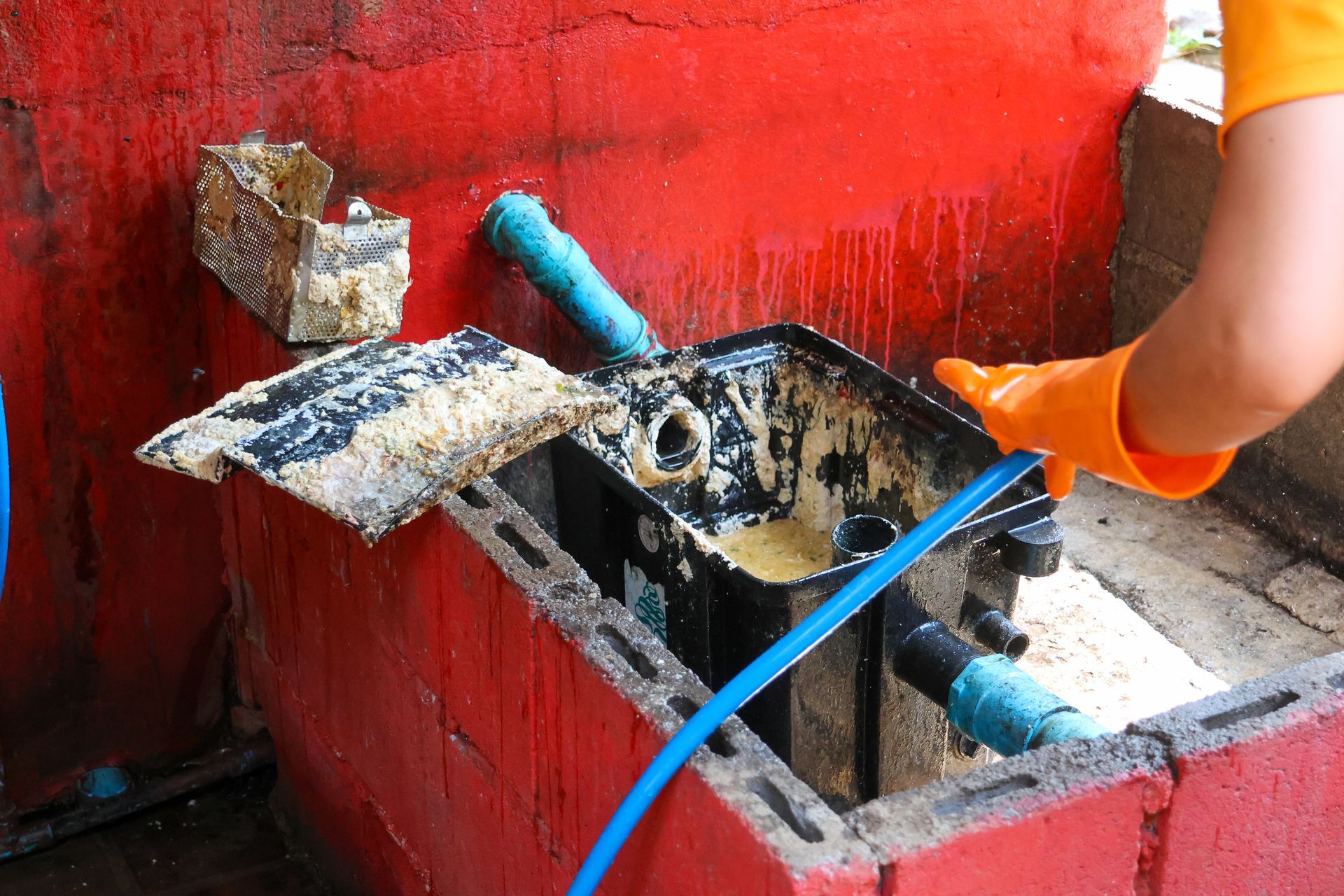How Atlanta Weather Affects Grease Traps and Used Fryer Oil Storage

Atlanta’s mild, humid subtropical climate has helped fuel its growth as a major food and hospitality hub. While summers can be hot and humid and occasional winter cold snaps happen, the weather is generally more of an advantage than an obstacle for restaurants and commercial kitchens.
That said, certain climate-related factors, like temperature swings and high humidity, can still affect grease trap function and used fryer oil storage in ways worth understanding.
Heat and Humidity: A Double-Edged Sword for FOG Management
1. Warm Temperatures Keep Grease Liquid—But Also Create Odor Problems
Atlanta’s summer temperatures often climb into the 90s, and those warm conditions keep fats and oils in a liquid state longer. On the surface, this might sound like a good thing: less chance of clogs caused by congealed grease, right?
Not necessarily.
Grease in a liquid state is more likely to slip past traditional grease traps, especially if the system isn’t properly sized or maintained. That can lead to blockages further down the line or non-compliance with city wastewater regulations.
Warm grease traps can also emit strong, unappetizing odors that can permeate parking lots and front-of-house areas. In humid conditions, those odors linger in the air and can affect customer experience.
2. Humidity Encourages Bacterial Growth and Faster Breakdown
Atlanta’s famous humidity contributes to rapid bacterial growth inside grease traps and waste oil containers. That can speed up decomposition, leading to stronger smells, quicker solidification and a greater need for frequent pumping.
If left too long, the microbial activity can form dense layers of sludge that reduce your grease trap’s efficiency. This not only creates backups but may also damage your plumbing infrastructure over time.
Used Fryer Oil Storage and Atlanta Weather
1. Outdoor Storage Requires Weatherproofing
Many Atlanta restaurants store used fryer oil in outdoor bins or tanks awaiting collection for recycling. But high humidity, direct sunlight and temperature swings can wreak havoc on unprotected storage systems. In warm weather:
- Oil can become rancid faster, especially if exposed to moisture.
- Outdoor bins may overflow or attract pests if not sealed properly.
- Plastic components of storage systems may degrade more quickly in the heat.
2. Sudden Cold Snaps Can Cause Thickening
While Atlanta is known for its warm climate, winter lows can occasionally dip into the 20s or 30s. During these rare but impactful cold snaps, waste oil and animal fats can thicken significantly, making pumping and removal more difficult. While this isn’t as severe as the sludge or frozen oil issues seen in colder northern states, it’s not an impossibility during the winter months in Atlanta.
Compared to the North: Easier, But Not Effortless
In places like Chicago or Minneapolis, food service operators face frozen waste oil, burst pipes and FOG that congeals into rock-hard layers during winter. Fortunately, Atlanta kitchens don’t typically have to deal with those extremes. However, that doesn’t mean the warm, humid climate is without its own set of issues.
Rather than freezing grease, Atlanta weather accelerates bacterial activity, increases odor complaints and makes grease traps harder to maintain during peak summer months. The systems might stay physically clear longer, but they require more frequent monitoring and cleaning to control odors. Some businesses may also be tempted to use chemical additives to manage odors, but these products are illegal in Atlanta and can cause compliance issues.
Best Practices for Managing Grease and Oil in Atlanta
To keep your food service operation compliant and running smoothly in Georgia’s ever-changing weather, here are a few tips:
- Service grease traps regularly, especially in summer months when decomposition and odor build-up are faster.
- Install properly sized traps that account for warm weather flow rates and oil volumes.
- Consider odor control systems if your grease trap is indoors or near customer-facing areas.
- Use sealed, weather-resistant containers for waste fryer oil to prevent contamination and leakage.
- Schedule frequent used fryer oil pickups with a trusted partner to avoid overflow and limit smell or pest issues.
Let Our Atlanta Grease Trap Cleaning and Waste Oil Recycling Professionals Help You Stay Ahead of the Weather
At Southern Green Industries, we specialize in FOG management for food service businesses across Georgia. Our team understands the demands of Atlanta’s hot, humid summers and unpredictable winters, and we tailor grease trap cleaning, maintenance and waste oil recycling services to meet those conditions head-on.
Contact us today to schedule your free estimate or give us a call at (404) 419-6887.
Recent Blog Posts
Contact us Today for a FREE Quote
We are committed to making grease trap cleaning and fryer oil recycling as clean and easy as possible. If you’d like to learn more about our services or get a quote, give us a call at (404) 419-6887.



